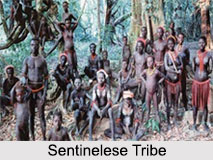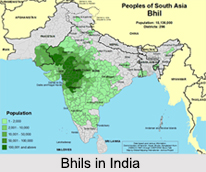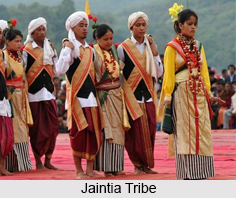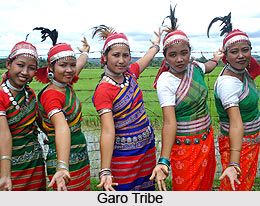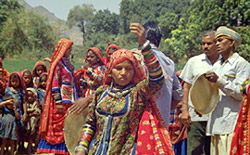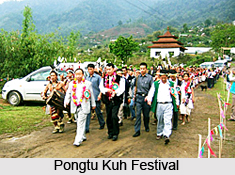 Pongtu Kuh festival is the major festival of the Tutsa tribe of Tirap district in the Arunachal Pradesh state of India. The Pongtu Kuh festival is an integral part of the socio cultural life of this tribal community. They celebrate the festival in the month of April every year. Pongtu festival is celebrated for seeking the blessings of the Almighty for the tender millet plants in the Jhoom field. This festival also has an interesting mythological legend associated with it.
Pongtu Kuh festival is the major festival of the Tutsa tribe of Tirap district in the Arunachal Pradesh state of India. The Pongtu Kuh festival is an integral part of the socio cultural life of this tribal community. They celebrate the festival in the month of April every year. Pongtu festival is celebrated for seeking the blessings of the Almighty for the tender millet plants in the Jhoom field. This festival also has an interesting mythological legend associated with it.
The celebration date of Pongtu Kuh festival is fixed by the village elders. As soon as the date is fixed, villagers start with the preparation of rice beer, collection of pigs, purchase of cows, buffalos etc. This festival continues for ten days immediately after the collection of all the required festival materials.
First Day of the Pongtu Kuh Festival
The first day of the Pongtu Kuh festival is called `Hawkjam Leijam`. On this day, young boys collect firewood and leaves (Kawpatta) from the forests. In the evening, they assemble in the house and old people (tekang) perform certain religious rites. The Tutsa people call this rite `Romtam.`The rite is performed by pouring rice beer into the hearth (tongcho) and that particular rice beer should invariably be prepared from rice cultivated in their fields. After performing the `Romtam` ritual, people gather at the Lowang`s or chief`s house for dancing and merry making.
Second Day of Pongtu Kuh Festival
The second day of the festival is known as `Lomsingsa`. On this day, villagers assemble in the chief`s house in order to perform the various rites and rituals. After the rites they take rice beer, meat, etc. and dance on the bamboo scaffold in front of the chief`s house. The Tutsa people wear traditional ceremonial dresses that are known as Pongtu Chom. People who participate in the dance are called `Samwalong`. They basically dance six rounds clockwise on the ground and proceed towards the house of the second chief of their village by singing the festival song. In the evening, villager see omen on their village and agriculture. They see the omen at first in second chief or Yomue Lowang`s house. The rite is called as "Walatachok". Then they proceed to the first Lowang`s (Chief) house and see the same omen. After completion of seeing omen, people take rice beer, meat etc. and dance together for the whole night.
Third Day of Pongtu Kuh Festival
`Lommat Sa` is the third day of the Tutsa`s Pongtu Kuh festival on which the young boys collect "Kikanglak" (a kind of branch of a jungle grove bearing sufficient inedible fruits) early in the morning. They collect that branch of the wood and keep them carefully with the belief that their paddy will also yield the same bumper fruit like the "Kikanglak". During day time, the "Samwalong" (people participating in the traditional dances) again start dancing after taking meal. They dance nine rounds in the whole village till evening. Then they proceed towards the second chief"s house and come back dancing to the first chief"s house. By this time, the headman of the "Samwalong" again performs a rite on the road. He takes some rice powder and keeps in the middle of the road indicating that nobody is permitted to cross the road during that night.
Fourth Day of Pongtu Kuh Festival
`Noktang` is the fourth day of the Pongtu Kuh festival. This day of the festival is considered as the rest day.
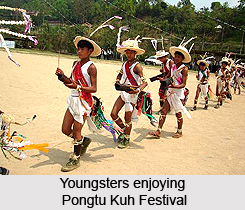 Fifth Day of Pongtu Kuh Festival
Fifth Day of Pongtu Kuh Festival
The fifth day is known as "Selak Sa". In this day, people from each house proceed to their agricultural field and collect three millet plants. They carry them to their houses and mix them with the hairs snatched from the tails of cows and buffalos. They keep all the four items together in the cane rucksack where they keep their valuables with the belief that it will bring wealth to the house. This particular rite is called "Romtak". However, the household which is having fatal accident or fire accident during the year do not perform this rite. On this day, people invite each other to have rice beer, meat etc.
Sixth Day of Pongtu Kuh Festival
The sixth day of Pongtu Kuh festival is known as "Lakrikhak Sa". In this day, the elders bless the younger ones of the family for their safety and progress. This rite continues for the whole day.
Seventh Day of Pongtu Kuh Festival
The seventh day is called "Sephophui Sa". In the morning of the seventh day, after taking meal people proceed to their agricultural field and collect a few selective millet plants destroyed by the pest. They carry them back to their houses and in the evening they burn them with the belief to destroy the pests.
Eighth Day of Pongtu Kuh Festival
The eighth day of this festival of the Tutsa tribe is known as `Sattok Noktong`. During this day, nobody is allowed to go out of their houses nor is anybody permitted to enter into the village. The Tutsa people believe that if anybody goes out of their house the number of pest will increase and the rites performed on the previous evening (by burning the millet plants) will be in vain.
Ninth Day of Pongtu Kuh Festival
Pongtu Kuh festival`s ninth day is called `Sukanghat Sa`. On this day, the villagers visit their agricultural fields and collect a particular piece of wood (they call it `Suntamlak`) and bring it to their houses. At night of the ninth day, they perform a religious rite on that piece of wood to ward off any natural calamity.
Tenth Day of Pongtu Kuh Festival
The tenth day of this tribal festival is known as `Chamwi Sa`. On this last day of the festival, every male member of the family goes to their paddy field. `Phungnu` is the person who goes at first to the field before sunrise to get blessings to reap bumper produce by the whole village. In the evening, people come back from their fields to their village and thus in this way, the festival comes to an end.
Pongtu Kuh festival of the Tutsa tribe is basically an ancient agricultural festival that is celebrated before the rainy season.

















